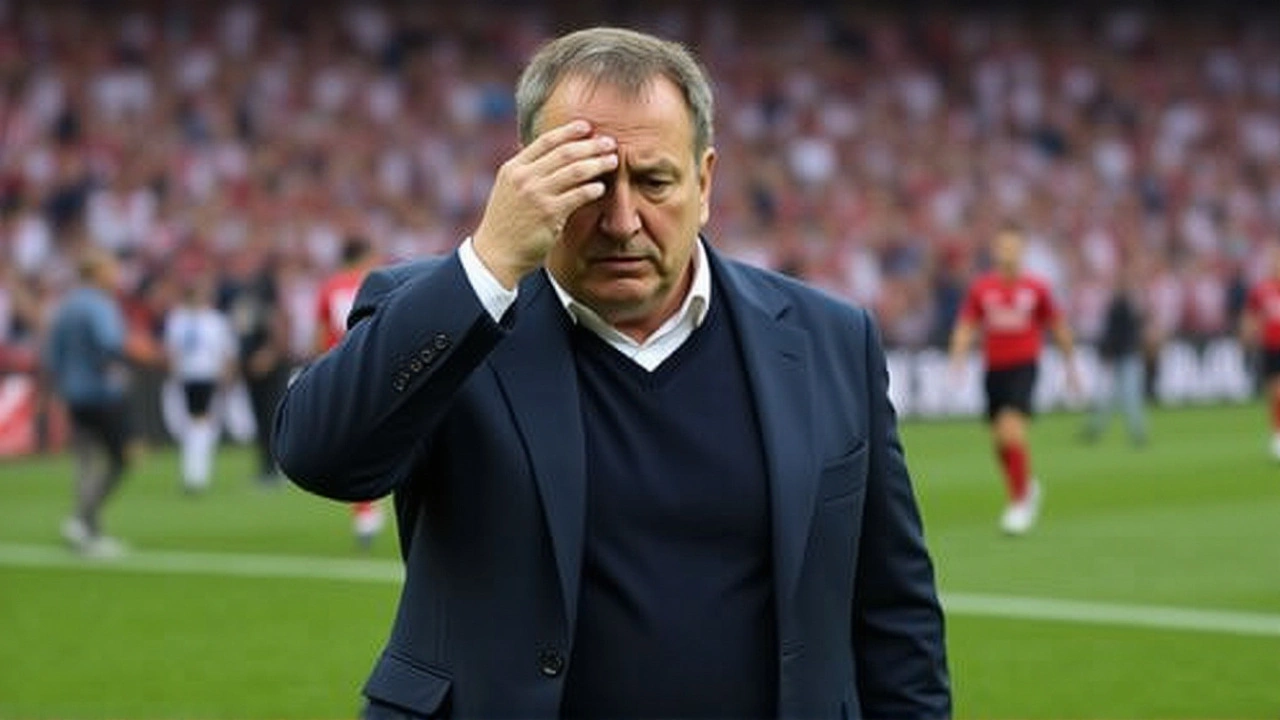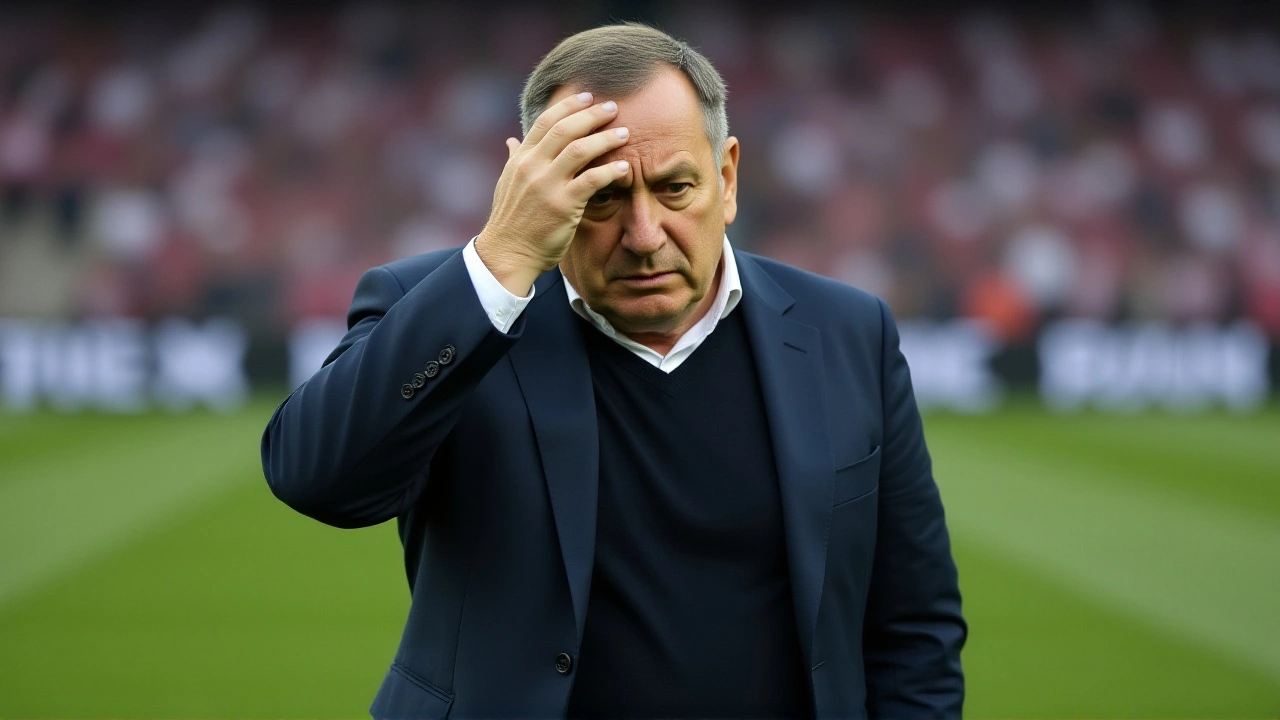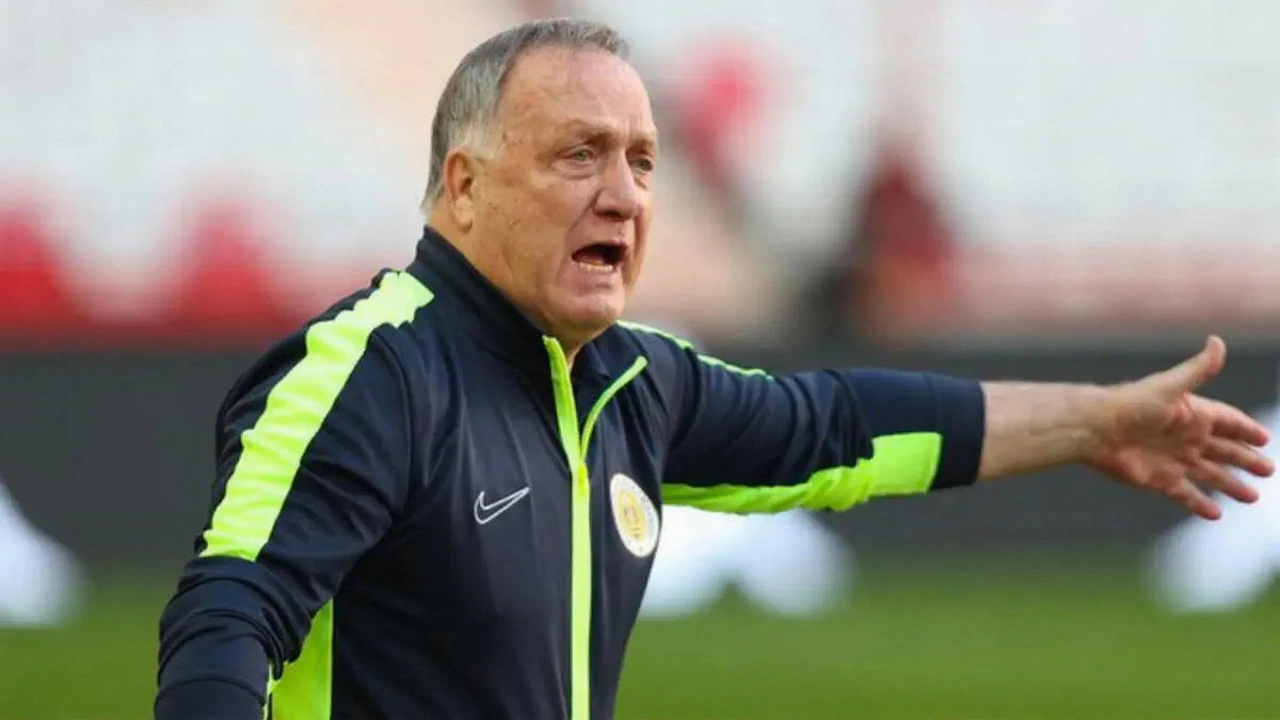Dick Advocaat Resigns as Sunderland AFC Manager Amid Relegation Battle
 Nov, 20 2025
Nov, 20 2025
When Dick Advocaat walked out of the Stadium of Light on October 4, 2015, he didn’t just leave a job — he left behind a club clinging to survival. The 68-year-old Dutch manager, who had been hired to steady the ship after last season’s nail-biting escape from relegation, resigned with immediate effect after just eight Premier League games in the 2015-16 campaign. Sunderland sat dead last in the table — 0 wins, 3 draws, 5 losses — and the weight of expectation had become unbearable. Advocaat didn’t wait for a defeat to go. He left after a 2-2 draw with West Ham United that, ironically, lifted them off the bottom of the table on goal difference. But he’d already made up his mind.
"It’s Not for Me, But for the Club"
Advocaat’s resignation statement was unusually candid. "I feel it is the right time to do this — not for me, but for the club," he said. That’s not the kind of line you hear often in football. Managers usually cling on, hoping for a turnaround. Advocaat knew better. He’d been there before. He’d saved Sunderland from relegation in 2014-15 after taking over from Gus Poyet in March. He’d even announced retirement that summer — only to reverse course on June 4, 2015, signing a one-year deal to return. But this season? The magic was gone. The players looked lost. The fans were restless. And the goals? They’d dried up.His only win of the campaign came in the League Cup — a 6-3 thrashing of Exeter City on August 25. In the league? Zero victories. The team had scored just five goals in eight matches. The defense, once reliable under his watch, was leaking. And the pressure? It was crushing.
A Manager Who Knew When to Walk Away
Advocaat’s career reads like a textbook on resilience. He’d coached the Netherlands national team, South Korea, and Russia. He’d won league titles in the Netherlands, Scotland with Rangers FC, and even lifted the 2002 Asian Cup with South Korea. But this? This was different. He’d seen the signs. The summer signings — Jeremain Lens and Fabio Borini — were supposed to be answers. Lens, his former PSV star, had looked disjointed. Borini, once a fan favorite, couldn’t find the net. The midfield? Static. The spirit? Fractured."I have some wonderful memories to take with me," Advocaat said. And he did. The 2015 FA Cup run, the dramatic win over Manchester United at home, the way he’d rallied a team written off by everyone. But this season? The players weren’t buying in anymore. The board? They’d spent big. And when results didn’t come, the blame started to stick.

Chairman Short’s Quiet Acceptance
Ellis Short, Sunderland’s American chairman, didn’t fight it. "I am truly saddened by Dick’s decision, but I respect him for his honesty," he said. That’s telling. Most chairmen would’ve pushed for a fight. Short didn’t. He knew Advocaat wasn’t just quitting — he was sacrificing himself to give the club a fighting chance. The timing was brutal. With the next match against Manchester City looming, the club needed a manager yesterday. But Advocaat believed giving the players space — and the next coach a clean slate — was worth the risk.His assistant, Zeljko Petrovic, left with him. That’s rare. Most assistants stay on to keep the ship afloat. But Petrovic was part of the same system. The entire coaching staff was gone. The message was clear: this wasn’t a change of tactics. It was a reset.
What Comes Next? The Relegation Trap
Sunderland’s next move is critical. The Premier League’s relegation zone is a black hole. Since 2000, only two teams have avoided relegation after being bottom at this stage of the season — and both were managed by legends who had months to turn things around. Sunderland doesn’t have months. They have weeks. The club will likely turn to a familiar face — perhaps Sam Allardyce, the master of survival, or Tony Pulis, the defensive architect. But even they’d need miracles.And here’s the kicker: the club’s financial model relies on Premier League revenue. Relegation means a £100 million+ loss. That’s not just wages — it’s academy funding, scouting networks, player development. The whole structure trembles.

The Legacy of a Manager Who Chose Honor Over Hope
Advocaat’s tenure at Sunderland was short, but it was defined by integrity. He didn’t blame the players. He didn’t attack the board. He didn’t make excuses. He simply said: "I can’t fix this anymore." And walked away. That’s not weakness. That’s leadership. In a game full of ego, he chose the club’s future over his own pride.He leaves with a record of 4 wins, 6 draws, and 9 losses across all competitions — a modest tally, but one that included saving the club from relegation in his first stint. He’ll be remembered not for the wins he didn’t get, but for the dignity he showed when the pressure became too much.
Frequently Asked Questions
Why did Dick Advocaat resign after only eight games?
Advocaat felt the team’s performance had plateaued and that a new voice was needed to avoid relegation. He believed staying longer would only delay necessary change, and he wanted to give the club and future manager time to rebuild. His resignation came after a 2-2 draw with West Ham United, though he’d reportedly decided to leave before the match.
How bad was Sunderland’s form under Advocaat in 2015-16?
Sunderland had zero wins in eight Premier League games (0-3-5 record), scoring just five goals and conceding 15. Their only victory of the season came in the League Cup against Exeter City. They sat 19th in the table, just above the relegation zone on goal difference, and were the league’s lowest-scoring side at the time.
Who else left with Dick Advocaat?
Assistant head coach Zeljko Petrovic departed alongside Advocaat, signaling a complete staff overhaul. This was unusual — most assistants remain to provide continuity. Their joint exit suggests a breakdown in the coaching philosophy and a desire to start fresh with a new leadership team.
What impact will Advocaat’s departure have on Sunderland’s chances of survival?
It’s a major blow. Teams in 19th place after eight games rarely survive — only two have done so since 2000. The club now faces a high-pressure search for a new manager with just weeks before the next international break. A slow hiring process could cost them dearly, especially with tough fixtures against Manchester City and Chelsea looming.
Did Advocaat have any success at Sunderland before this?
Yes. Appointed in March 2015 after Gus Poyet’s sacking, Advocaat guided Sunderland to safety in the 2014-15 season with a 1-0 win over Manchester United in his final game. He was credited with restoring discipline and confidence, turning a team that looked doomed into one that finished 15th — a remarkable turnaround in just 10 games.
Is this the end of Advocaat’s managerial career?
Unlikely. At 68, Advocaat has repeatedly defied retirement. He returned from a 2015 retirement announcement to take the Sunderland job, and his international experience makes him a candidate for national team roles or a mid-season rescue at another Premier League club. He’s not done — just done with Sunderland for now.